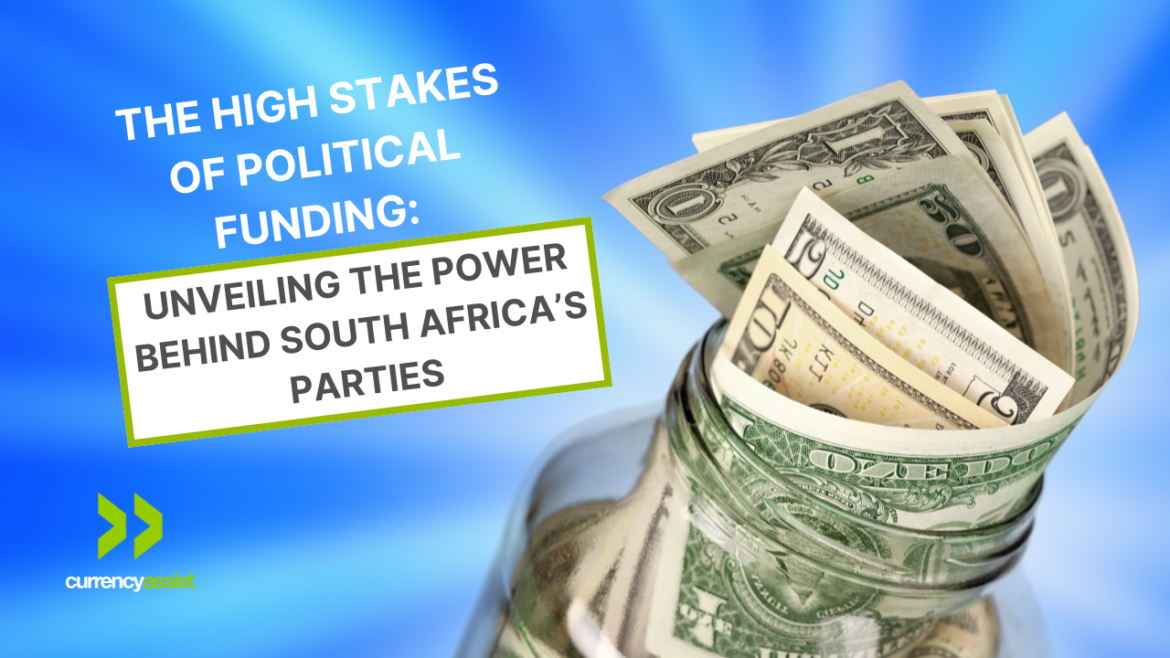After recent months of intense elections and the formation of a new Government of National Unity (GNU), South Africa is now turning its gaze toward the future. As the nation contemplates its next steps, it’s crucial to delve into the financial support behind our political landscape. This scrutiny reveals how the influence of money shapes our politics and, consequently, our country’s direction.
The Power of Wealth in Politics: An Overview
In the aftermath of a tumultuous election season and the establishment of the new GNU, the spotlight now shines on the role of financial backing in South Africa’s political arena. The recent passing of the Electoral Matters Amendment Bill by Parliament marked a significant shift, dismantling key elements of the Political Party Funding Act (PPFA). Originally enacted in 2021, the PPFA was designed to enhance transparency in political funding, capping individual donations and mandating disclosure of contributions above R100,000.
The amendment, introduced under the guise of expanding opportunities for independent candidates, also undermined the PPFA’s transparency provisions. This move follows a broader trend where financial pressures and political expediency have overshadowed democratic principles.
The Weighing Scales: Who Funds Our Political Parties?
South Africa’s political parties, despite their varied platforms, share a common dependency on a few influential donors. The top donors include Patrice Motsepe, Martin Moshal, and the Oppenheimer family, whose combined contributions have significantly impacted the political landscape.
– Patrice Motsepe: The billionaire mining magnate has donated over R19 million across several parties, including the ANC, DA, and EFF. His broad support reflects an attempt to influence various political factions.
– Martin Moshal: Known for his online casino empire, Moshal has contributed R46.5 million, mainly to the DA and ActionSA. His donations are strategic, aimed at bolstering parties that align with his interests.
– The Oppenheimer Family: This prominent family has donated over R33 million, predominantly to the DA and ActionSA. Their support underscores a preference for parties advocating neoliberal policies.
The Impact of Big Money: Influence and Accessibility
The influence of these major donors raises pressing questions about the integrity of our democratic processes. For instance, the Oppenheimers’ substantial contributions have largely supported parties with economically conservative platforms, while Motsepe’s donations are spread across the spectrum, reflecting his diverse political engagements.
The underlying concern is the extent to which these contributions affect policy decisions and party platforms. With large donors wielding significant influence, the risk of policy capture increases, where decisions may disproportionately benefit a select few rather than the broader public.
Calls for Reform: Toward a Fairer System
The debate around political funding is not merely about transparency but about ensuring that democracy is not compromised by financial influence. The ANC’s recent proposal to replace private funding with public funding for political parties highlights a potential pathway forward. This approach aims to reduce the power of wealthy donors and ensure that political influence is more representative of the electorate’s will.
The Case for Public Funding
Positive Aspects:
- Reduced Influence of Wealthy Donors: Public funding could significantly decrease the influence of individual donors on political parties, ensuring that policies and decisions are less likely to be swayed by the interests of a few wealthy individuals.
- Increased Transparency: A system reliant on public funds would require clear and transparent mechanisms for distributing funds, potentially reducing corruption and increasing trust in the political system.
- Greater Fairness: Public funding can help level the playing field, enabling smaller or less financially endowed parties to compete more fairly with larger parties that have significant private backing.
Negative Aspects:
- Financial Burden on Taxpayers: Shifting to a system of public funding could impose a substantial financial burden on taxpayers, especially if funding levels are set high to ensure fair competition among parties.
- Potential for Inefficiency: There is a risk that public funding might not be managed as efficiently as private funds, leading to wastage or misuse of resources if not properly regulated and overseen.
- Risk of Politicisation: The allocation of public funds could become a political issue, with parties potentially using their influence to secure larger shares of funding or criticise funding decisions that disadvantage them.
The Road Ahead: Ensuring Transparency and Accountability
As South Africa navigates its political future, it is vital to address the role of money in politics. The recent court ruling that reinstated donation limits and disclosure thresholds under the PPFA is a step toward reinstating crucial safeguards. However, ongoing advocacy is necessary to ensure that these regulations evolve to address current challenges and maintain the integrity of our democratic processes.
The influence of money in politics remains a critical issue that demands ongoing scrutiny and reform. As voters, activists, and policymakers, we must remain vigilant to ensure that our democracy is not undermined by the disproportionate influence of a few wealthy individuals. By advocating for greater transparency and fairer funding mechanisms, including a balanced consideration of both public and private funding models, we can help secure a political system that truly represents the interests of all South Africans.
This analysis aims to shed light on the complex relationship between money and politics in South Africa, emphasising the need for continued vigilance and reform to protect our democratic values.

